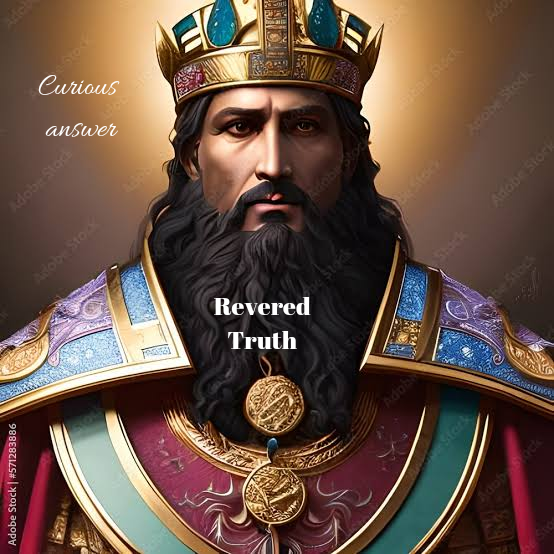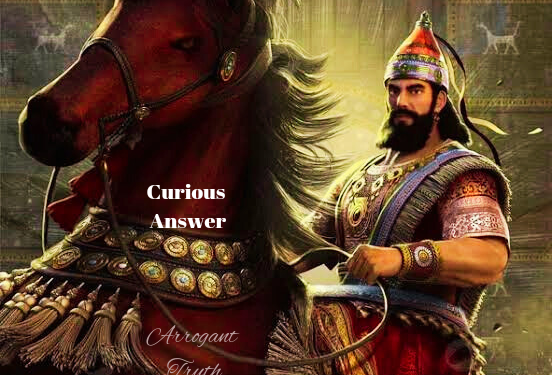The ancient world has witnessed the rise and fall of numerous great empires, each led by powerful rulers who left their mark on history. Among these rulers, King Nebuchadnezzar II of Babylon stands out for his grandiose narcissistic traits, as depicted in the Bible. With a keen blend of historical records and biblical passages, we can unravel the complex personality of this enigmatic king. This article aims to shed light on the grandiose narcissistic traits of King Nebuchadnezzar and the impact they had on his reign.
The Rise to Power
Nebuchadnezzar II ascended to the throne of Babylon in 605 BC, following a series of military campaigns that culminated in the Battle of Carchemish. As his empire grew in size and influence, so did his perception of self-importance. This growing sense of grandiosity is reflected in his actions and decisions throughout his reign.
Daniel 4:28-30 (NIV):
“All this happened to King Nebuchadnezzar. Twelve months later, as the king was walking on the roof of the royal palace of Babylon, he said, ‘Is not this the great Babylon I have built as the royal residence, by my mighty power and for the glory of my majesty?'”
1.) Grandiose Self-Perception
One of the hallmark traits of grandiose narcissism is an inflated sense of self-worth and a constant need for admiration. King Nebuchadnezzar exhibited this trait by viewing himself as the mastermind behind the greatness of Babylon. The aforementioned biblical passage showcases his boastful declaration of being responsible for the construction of the splendid Babylonian city, attributing its grandeur solely to his own power and glory.
Daniel 3:1-7 (NIV):
“King Nebuchadnezzar made an image of gold, sixty cubits high and six cubits wide, and set it up on the plain of Dura in the province of Babylon. He then summoned the satraps, prefects, governors, advisers, treasurers, judges, magistrates and all the other provincial officials to come to the dedication of the image he had set up.”
2.) Monumental Narcissism
Narcissistic rulers often seek to immortalize their legacy through extravagant monuments and displays of grandeur. King Nebuchadnezzar’s construction of a colossal gold statue is a clear example of this. The statue, measuring an imposing sixty cubits in height, was intended to symbolize his authority and divinely ordained leadership. This act of erecting such a monumental structure was driven by his desire to be revered and remembered for generations to come.
Daniel 2:46-49 (NIV):
“Then King Nebuchadnezzar fell prostrate before Daniel and paid him honor and ordered that an offering and incense be presented to him. The king said to Daniel, ‘Surely your God is the God of gods and the Lord of kings and a revealer of mysteries, for you were able to reveal this mystery.’ Then the king placed Daniel in a high position and lavished many gifts on him.”
3.) Seeking Adulation
Narcissistic individuals often demand constant affirmation and recognition from others. Following Daniel’s interpretation of his dream, Nebuchadnezzar exhibited this trait by offering excessive praise and rewards to Daniel. This act of showering Daniel with lavish gifts and elevating his status was a way for Nebuchadnezzar to garner admiration while maintaining a semblance of control.
The Fall from Grace
The narrative of King Nebuchadnezzar’s narcissism takes a dramatic turn as he experiences a humbling downfall that shatters his grandiose self-perception. Through a series of divine interventions, Nebuchadnezzar’s narcissistic traits are exposed, and he is forced to confront his own limitations and the true source of his power.
Daniel 4:31-33 (NIV):
“Even as the words were on his lips, a voice came from heaven, ‘This is what is decreed for you, King Nebuchadnezzar: Your royal authority has been taken from you. You will be driven away from people and will live with the wild animals; you will eat grass like the ox. Seven times will pass by for you until you acknowledge that the Most High is sovereign over all kingdoms on earth and gives them to anyone he wishes.'”
Divine Humbling
In a remarkable turn of events, Nebuchadnezzar is struck with a form of insanity that forces him to live as a beast in the field. This humbling experience serves as a divine intervention aimed at breaking down his pride and dismantling his grandiose self-perception. Nebuchadnezzar’s transformation from a powerful ruler to a helpless and deranged individual is a poignant reminder of the impermanence of earthly power and the limitations of human grandiosity.
Daniel 4:34-37 (NIV):
“At the end of that time, I, Nebuchadnezzar, raised my eyes toward heaven, and my sanity was restored. Then I praised the Most High; I honored and glorified him who lives forever. His dominion is an eternal dominion; his kingdom endures from generation to generation.”
The Path to Redemption
Through his humbling experience and subsequent restoration, Nebuchadnezzar undergoes a transformation that reflects a newfound humility and recognition of a higher power. His journey from grandiose narcissism to a place of reverence for the divine exemplifies the potential for change even in the most entrenched of personalities.
Conclusion
The story of King Nebuchadnezzar offers a compelling glimpse into the grandiose narcissistic traits that can manifest in powerful rulers. His inflated self-worth, insatiable need for admiration, and penchant for monument-building all paint a vivid picture of his narcissistic tendencies. However, his ultimate downfall and subsequent transformation serve as a cautionary tale, highlighting the transient nature of human power and the potential for growth and redemption.
As we reflect on Nebuchadnezzar’s journey, it serves as a reminder that even the mightiest of leaders are subject to the forces of humility and divine intervention. The intricate interplay between power, pride, and transformation found in this ancient tale continues to resonate in today’s world, offering valuable lessons for leaders and individuals alike.








































Discussion about this post